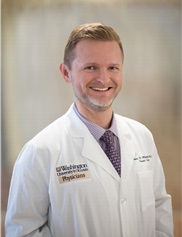Grants Funded
Grant applicants for the 2024 cycle requested a total of nearly $3 million dollars. The PSF Study Section Subcommittees of Basic & Translational Research and Clinical Research evaluated more than 100 grant applications on the following topics:

The PSF awarded research grants totaling over $650,000 dollars to support more than 20 plastic surgery research proposals.
ASPS/PSF leadership is committed to continuing to provide high levels of investigator-initiated research support to ensure that plastic surgeons have the needed research resources to be pioneers and innovators in advancing the practice of medicine.
Research Abstracts
Search The PSF database to have easy access to full-text grant abstracts from past PSF-funded research projects 2003 to present. All abstracts are the work of the Principal Investigators and were retrieved from their PSF grant applications. Several different filters may be applied to locate abstracts specific to a particular focus area or PSF funding mechanism.
Impact of Timing of Radiation on IMAs
Terence Myckatyn MD
2015
Washington University in St.Louis
ASRM/PSF Research Grant
Breast (Cosmetic / Reconstructive), General Reconstructive
This study evaluates the histopathologic impact and patency rates of microvascular breast reconstruction when recipient internal mammary vessels are radiated in the recent versus remote past. When radiation is required to treat breast cancer, it is common to delay reconstruction for 6 months or more to minimize the effects of radiation. The negative impact of radiation takes time to develop but there are no studies that specifically evaluate this. In other types of cancer care where radiation is required, surgery is often intentionally performed quickly after radiation before its adverse consequences occur. Patients stratified as non-radiated, radiated <6 weeks ago, or >6 months ago relative to microvascular anastomosis will be evaluated in a translational research, and clinical aim. In all cases, software will be used to calculate the exact dose of radiation delivered to the internal mammary vessels at the level of microvascular anastomosis. The first aim is translational, using quantitative histology to identify differences between study groups. Vessel lumen caliber and wall dimensions, as well as the relative composition of the vessel wall including collagen, elastin, keratin, smooth muscle actin, and macrophages will be compared. We hypothesize that vessels radiated less than 6 weeks prior to microvascular anastomosis will resemble non-radiated vessels while those radiated >6 months ago will demonstrate increased fibrosis with higher collagen:elastin ratios, disorganized smooth muscle actin, large numbers of macrophages, and disrupted mucopolysaccharide distribution. The second aim investigates the clinical impact of early versus late microsurgery after radiation, retrospectively evaluating anastamotic patency and wound healing rates in the same non-,early-, and late-radiated groups. Even if a reduction in anastamotic failure is achieved with early microvascular surgery after radiation, it will be important to confirm that wound healing rates are not significantly impacted by this change in approach as concern over compromised wound healing immediately after radiation is a consideration. If early reconstruction after radiation therapy has better patency rates than delayed reconstruction, with no significant difference in wound healing, then these findings would provide strong preliminary evidence to support early intervention with microvascular flaps after radiation and thereby change current practices in microvascular breast reconstruction.
 I received my undergraduate, medical school and preliminary general surgery training at the University of British Columbia before completing a plastic surgery residency and peripheral nerve research fellowship at Barnes Hospital/Washington University. I have received competitive research awards by the American College of Surgeons and American Association of Plastic Surgeons and was promoted to Professor at Washington University. My research background transitioned from studying nerve regeneration basic science to clinical outcomes research in breast reconstruction and cosmetic surgery, reflecting my clinical practice. My recent studies include a multicenter study, funded by the Plastic Surgery Foundation examining the clinical impact of fat transfer on breast cancer recurrence, and a randomized prospective trial examining the impact of incision location on clinical and patient reported outcomes in women undergoing nipple-sparing mastectomy with implant-based breast reconstruction. A key area of my research is examining the microbiome associated with reconstructive and cosmetic breast implants. I reported on the diverse microbiome causing breast implant infections at our facility and studied the impact of acellular dermal matrices on bacterial biofilms in reconstructive breast implant surgery. I have established a collaboration with Dr. Scott Hultgren, a world-expert in infectious disease in women, here at Washington University to advance this field in plastic surgery.
I received my undergraduate, medical school and preliminary general surgery training at the University of British Columbia before completing a plastic surgery residency and peripheral nerve research fellowship at Barnes Hospital/Washington University. I have received competitive research awards by the American College of Surgeons and American Association of Plastic Surgeons and was promoted to Professor at Washington University. My research background transitioned from studying nerve regeneration basic science to clinical outcomes research in breast reconstruction and cosmetic surgery, reflecting my clinical practice. My recent studies include a multicenter study, funded by the Plastic Surgery Foundation examining the clinical impact of fat transfer on breast cancer recurrence, and a randomized prospective trial examining the impact of incision location on clinical and patient reported outcomes in women undergoing nipple-sparing mastectomy with implant-based breast reconstruction. A key area of my research is examining the microbiome associated with reconstructive and cosmetic breast implants. I reported on the diverse microbiome causing breast implant infections at our facility and studied the impact of acellular dermal matrices on bacterial biofilms in reconstructive breast implant surgery. I have established a collaboration with Dr. Scott Hultgren, a world-expert in infectious disease in women, here at Washington University to advance this field in plastic surgery.